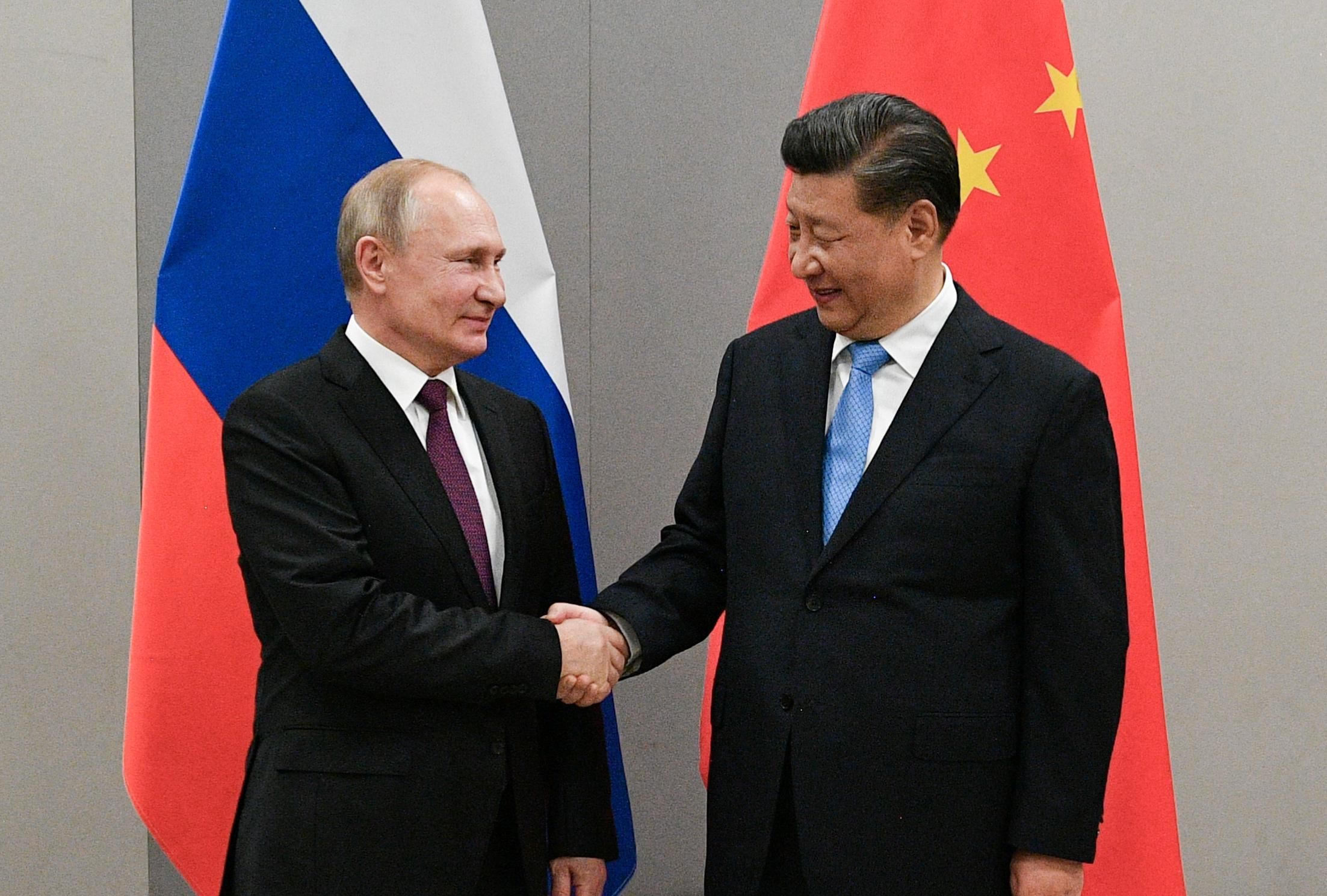Whenever China and Russia shake hands, alarm bells ring in Washington. It's an old story given new life by increasingly contentious US relations with both countries and a new round of glad-handing by senior Chinese and Russian officials. What if China and Russia were to form some kind of axis of revisionist powers, Americans (and others) wonder? How dangerous might that be for US interests and for global democracy?
China and Russia have obvious overlapping interests. Start with trade. China is the world's largest importer of oil and natural gas. Russia is the number two exporter of oil and the top for natural gas. It's a natural partnership.
Geopolitically, China and Russia share a common desire to limit American political and economic leverage in their neighborhoods. Neither wants to hear criticism of how they manage dissent within their own borders or US sermons on democracy for Taiwan and Ukraine. China likes US tariffs about as much as Russia likes US sanctions.
Both want seats at the table where global leadership decisions are made. The election of Joe Biden, who has much more to say on human rights in other countries than Donald Trump did, adds new impetus to what Russia's Vladimir Putin calls his country's "multifaceted strategic partnership" with China.
But there are important factors that limit just how close China and Russia are likely to become. First, Beijing and Moscow are serious about their "spheres of influence," and there are places where those spheres overlap, creating zones of competition. That's especially important in Central Asia and the South Caucasus, regions once part of the Soviet Union where Russia remains overtly and covertly active and where China is now investing vast sums as part of its Belt and Road international infrastructure plan to connect China and Europe by road and rail.
Second, when it comes to trade, the partnership is entirely one-sided. For Russia, China is trade partner number one. Some 15.5 percent of its trade is with China. But for China, Russia doesn't make the top 12. China's top export partner is the United States. The EU, Japan, and its other Asian neighbors are all more important for Chinese trade, while less than 1 percent of China's trade is with Russia. In fact, China exports more to the Netherlands than to Russia.
That matters, because political stability in China depends on economic stability, and economic stability depends far more on pragmatic relations with America and Europe than on any form of partnership with Russia.
China and Russia will sign new trade agreements, particularly for Chinese purchases of Russian energy and weapons. They will conduct joint military exercises. They will work together to try to shape cyber rules.
But China needs constructive relations with the West, while Russia would like a more fundamental redraw of the international system. Their transactional relationship won't lead to a military alliance that doesn't serve China's purposes or even to systematically share intelligence as the Five Eyes allies— US, UK, Canada, Australia and New Zealand — do.
Not only should Washington worry less about a China-Russia axis, it should consider the value in what China-Russia competition has to offer. In particular, Beijing and Moscow believe COVID has created an opportunity for each to boost its image and influence. (That's especially important for China, where the pandemic began.) And that's a good thing.
China and Russia have each produced and distributed COVID vaccines that appear to be relatively safe and effective. China has supplied millions of vaccine doses to 49 countries in Asia, Africa, and Latin America. Russia has sent supplies to 22 countries. That's good for the people who've been vaccinated, good for those countries, good for the world, and, therefore, good for us all.
Bottom-line: China and Russia will give Americans and others plenty to worry over in coming years without exaggerating what their governments might do together. And in today's world in crisis, all of us should welcome help from wherever it can be found.
- What could spark a US-China war? ›
- Michael Chertoff: Russia is not a long-term strategic rival for the US - GZERO Media ›
- Zelensky knows how to talk to the West - GZERO Media ›
- China's year of unpredictability - GZERO Media ›
- Why Russia is fighting in Ukraine without any allies - GZERO Media ›
- Putin needs Xi to win the war in Ukraine - GZERO Media ›
- Xi invites Putin to China to strengthen "no limits" partnership - GZERO Media ›
- Will China become the world’s dominant military power? - GZERO Media ›
- How China plans to achieve global military dominance - GZERO Media ›
- Russia-Ukraine reality check - GZERO Media ›
- Is President Trump's Russia pivot a win for China? - GZERO Media ›
